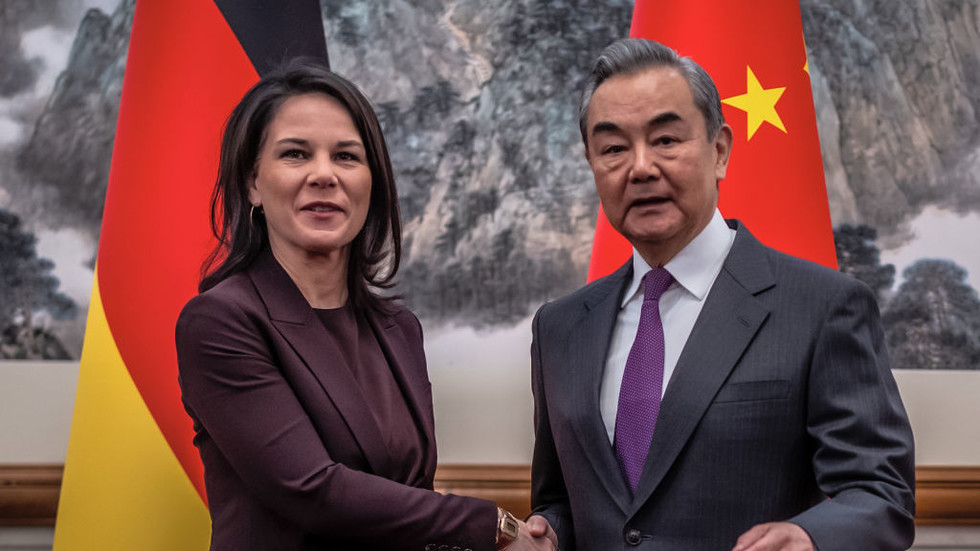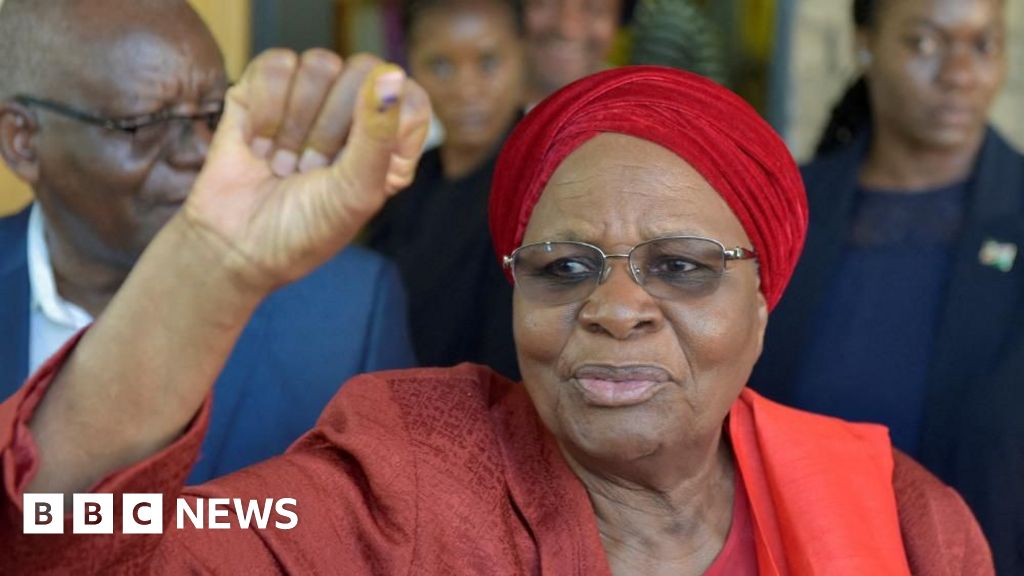When will the Rafah offensive begin?
Discussions about a possible military offensive on Rafah, a city in southern Gaza, have been going on in Israel since early February. According to Israeli media reports from late April, troops have now finished their preparations for the ground offensive. All that remains is for Israeli Prime Minister Benjamin Netanyahu to give the word.
Netanyahu recently announced the operation could begin "in the coming days" and that army officials estimated about six weeks of "continuous fighting" would be necessary.
 Aid groups are issuing warning after warning about the risk of famine in GazaImage: -/AFP/Getty Images
Aid groups are issuing warning after warning about the risk of famine in GazaImage: -/AFP/Getty ImagesHowever, security experts are not certain the offensive is about to start. Neighboring Egypt is currently trying to negotiate a new hostage release deal between Israel and Hamas, in the hope of seeing off, or at least delaying, a Rafah offensive.
What is the situation for people on the ground in Rafah?
More than 80% of the Gaza Strip's total population of 2.3 million is displaced. The majority of housing and infrastructure has also been destroyed by the Israeli miitary campaign. With Israeli forces in control of northern Gaza, up to 1.4 million people are seeking refuge in Rafah. It is now the most densely populated city in the coastal enclave.
Gaza: 'Most people want to leave,' says veteran diplomat
Refugee camps in the area around Rafah are full. There is a lack food, medicine and drinking water because aid shipments have been unable to enter. The humanitarian situation in Gaza is unbelievably bad, a representative of US development organization USAID said recently. In southern Gaza, nearly a quarter of the population is affected by catastrophic food insecurity, with children particularly badly affected.
Why is Rafah important for Israel?
Israel believes Rafah is the last stronghold of Hamas, the miltant group that controls the Gaza Strip and is classified as a terrorist organization by Israel, the US and the EU among others. On October 7, Hamas members attacked Israel, which resulted in the deaths of around 1,200 people. Around 240 people were taken to Gaza where they are being held as hostages.
Israel claims up to four of 24 Hamas brigades are still hiding in or under Rafah. Hamas has been weakened by seven months of fighting with Israel but is not militarily defeated. Although the number of rocket attacks on Israel has fallen sharply, they have not stopped completely. An analyst in Israel previously told DW that Israel has destroyed 70 to 80% of Hamas' arsenal so far. This cannot be indepedently verified.
How does Israel say it will protect civilians in Rafah?
In the last week of April, the Israeli army announced that preparations for the evacuation of civilians from Rafah were complete. The Israeli Ministry of Defense has procured around 40,000 tents for civilians from Rafah to accommodate people in and around the city. The US news agency the Associated Press published pictures of the first large tent city west of Khan Younis. It is currently unclear where further supply points could be set up.
 Hundreds of thousands are already living in makeshift camps in RafahImage: Bassam Masoud/REUTERS
Hundreds of thousands are already living in makeshift camps in RafahImage: Bassam Masoud/REUTERSMeanwhile, the US has begun building a temporary port off the coast of the northern Gaza Strip, which it says could be operational by early May and from then on facilitate supplies to the civilian population.
However, the establishment of a functioning infrastructure for hundreds of thousands of internally displaced persons requires many partners. Such a process, involving aid organizations, UN agencies and donor states could take several more weeks. Currently most aid reaches the camps via the Rafah border crossing.
What do others say?
Neighboring Egypt fears that many refugees could cross over from the border city Rafah into the Egyptian region of Sinai. Media reports suggested that Egypt might pull out of a peace treaty it had with Israel, but the country's foreign minster later denied this.
Israel's most important ally, the US, has slammed the planned offensive. Back in February, US President Joe Biden called on the Israeli Prime Minister not to begin the offensive without a convincing plan to protect the civilian population.
In mid-April, US Secretary of State Antony Blinken ruled out American support for such an operation. "We cannot support a major military operation in Rafah," he said, adding that this would have "terrible consequences" for people in Rafah.
This article was adapted from the original German.

 7 months ago
37
7 months ago
37









